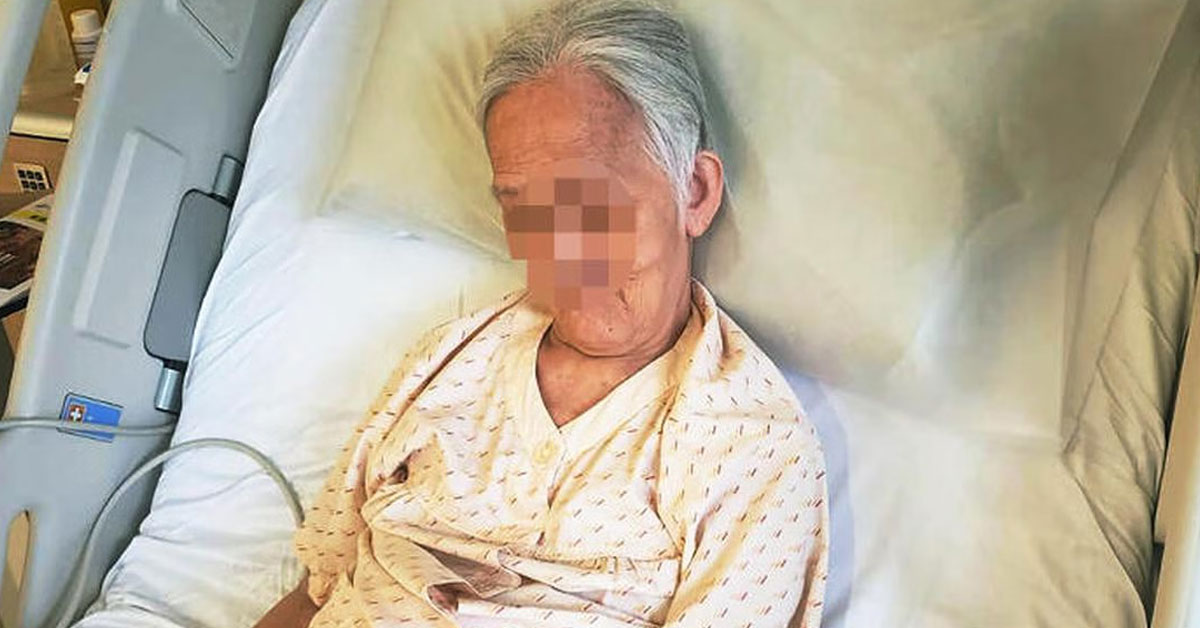A 70-year-old woman collapsed at home and remains bedridden after receiving five sessions of Traditional Chinese Medicine (TCM) massage and therapy treatments worth over $17,000.
Her family contacted the police after the TCM clinic refused to disclose the ingredients of the external medicine used in her treatment.
Here’s what happened.
70YO Woman in S’pore Bedridden After TCM Treatment That Cost $17,290
Mr Cai, a 46-year-old tuition teacher, told Shin Min Daily News that his 78-year-old mother, Ms Liu, was found unconscious and partially undressed in her bed on 10 November evening.
The family rushed her to the hospital immediately.
Upon admission, Ms Liu appeared severely unwell and was in a semi-conscious state. Doctors diagnosed her with gastric bleeding, which required emergency surgery.
She spent three days in the intensive care unit. During admission, doctors asked the family if Ms Liu had been taking any Chinese medicine.
Medical professionals explained that certain external Chinese herbs might contain steroids, which can increase stomach acid production and potentially cause ulcers.
These substances, once absorbed, could lead to gastrointestinal bleeding and other systemic effects.
The family was initially unaware of any TCM treatments until their domestic helper found receipts while cleaning Ms Liu’s room.
The receipts showed two packages purchased from a TCM clinic – one for $8,390 in September and another for $8,900 in October. The receipts indicated partial payments of $8,190 and $7,120 had been made.
When Ms Liu’s daughter contacted the TCM clinic to inquire about the treatment details, the clinic declined to reveal the medicine’s ingredients, stating they couldn’t disclose their formulas.
Mr Cai has filed a police report and complaints with both the Traditional Chinese Medicine Practitioners Board (TCMPB) and Consumers Association of Singapore (CASE).
The police confirmed receiving the report and have forwarded the case to the TCMPB.
TCMPB has acknowledged receiving the family’s notification and advised that families wishing to file formal complaints against specific TCM practitioners should submit a statutory declaration.
Submitting a statutory declaration means making a formal written statement of facts that you declare to be true under oath or affirmation. It is signed in the presence of an authorized official, like a commissioner for oaths or notary public, and is legally binding.
TCM is Regulated in Singapore
You might not know this, but TCM is regulated in Singapore.
The Traditional Chinese Medicine Practitioners Act, enacted in 2000, mandates that all TCM practitioners must be registered with the Traditional Chinese Medicine Practitioners Board (TCMPB), a statutory board under the Ministry of Health (MOH).
This regulatory framework ensures that practitioners meet stringent academic and professional standards before they are allowed to practice.
The TCMPB is responsible for accrediting TCM educational institutions and courses, as well as overseeing the professional conduct and ethics of registered practitioners.
In addition to practitioner regulation, the Health Sciences Authority (HSA) oversees the safety and quality of Chinese Proprietary Medicines (CPM) in Singapore.
All CPM products must comply with specific safety and quality criteria before they can be sold, and dealers are required to be licensed by HSA.
This comprehensive regulatory approach ensures that both TCM practices and related medicinal products adhere to high standards, safeguarding public health and maintaining the integrity of traditional medicine in Singapore.
If you watch at least 10 minutes of brain rot content daily, you must know this:


Read Also:
Advertisements

